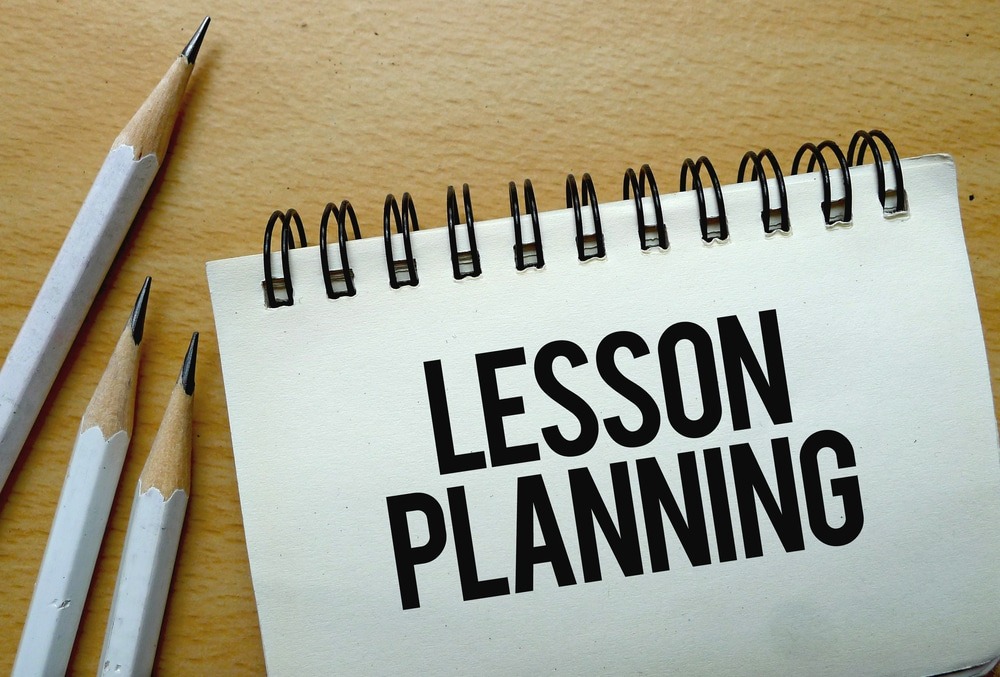What is a lesson plan?
A lesson plan is a document with a detailed guide for teaching a specific lesson to a group of students. A lesson plan is an essential tool for teachers. It provides a detailed road map for teaching. It outlines the objectives, materials, activities, and assessment methods to use in a specific lesson. A well-crafted lesson plan allows the teacher to stay organized and focused during the lesson. It ensures that all the important points are covered and nothing gets missed out. It can cover a single unit or span the entire course. Hence, it is an invaluable resource for any classroom instructor.
Its goal is to ensure that the lesson is well-prepared, efficient, and effective in helping students learn. Lesson plans help teachers to plan and deliver instruction in a systematic way. Lesson planning allows them to focus on their teaching and ensure that their students receive the best possible education.
When planning for a lesson, educators have the option.
- Create their own lesson plans or
- Choose from existing predesigned lesson plan templates.
You can save a lesson plan either as a physical document or a PDF file for easy reference and tracking.
Note: If you are here searching for 40 lesson plans for B.Ed. then the link of the PDF is given at the end of the post. Please scroll down to get your PDF.
Components of an Effective Lesson Plan
Lesson plans primarily include a schedule of exercises that you will deliver in the lesson. Some lesson plans also include other sections for more thorough planning.
A general lesson plan format can be like this:
- Activities of lesson
- Materials of lesson
- Objectives of lesson
- Goals of lesson
- Feedback of lesson
A typical lesson plan includes the following things:
- Objectives: a clear statement of what students should be able to do or know by the end of the lesson.
- Materials: a list of resources or materials that will be needed for the lesson.
- Procedure: a step-by-step guide for delivering the lesson, including activities, discussion points, and assessments.
- Assessment: a method of evaluating whether the lesson’s objectives have been met, such as a quiz or test, a written assignment, or a class discussion.
- Anticipatory Set: an introduction to the lesson that captures students’ attention and sets the stage for learning.
- Instruction: a clear explanation of the content and skills being taught.
- Guided Practice: an opportunity for students to practice the skills they have learned, often with the teacher’s support.
- Independent Practice: an opportunity for students to apply what they have learned on their own. They can do it either through a class activity or a homework assignment.
- Closure: a summary of the key points learned during the lesson and a preview of future lessons.
Elements vary in importance or structure depending on the subject and grade level. However, these typically form the core components of any successful lesson plan.
If you want to learn how to write lesson plans for B.Ed. in general, check out this section. Otherwise, keep scrolling to see more.
Significance of Lesson Plan
Lesson plans are important for several reasons:
- Organization: A well-organized lesson plan helps teachers to stay on track during the lesson. It saves time and ensures that all necessary information and materials are prepared in advance.
- Clarity of Goals: A lesson plan helps teachers to clearly define the goals and objectives of the lesson. So, the lesson plan will keep the lesson focused and on-topic.
- Improved Instruction: Planning out the lesson in advance, allows teachers to think through the pacing, sequence, and organization of the material. Which results
in improved instruction and more effective learning for students.
- Assessment: Lesson plans allow teachers to plan for assessment and evaluation. This will ensure that students are making progress and mastering the content.
- Collaboration: Sharing lesson plans with colleagues or departmental teams will facilitate collaboration.
Overall, lesson plans are an essential tool for teachers to ensure that their lessons are well-prepared, effective, and successful in helping students learn.
Lesson plans for B.Ed.
It is obligatory for B.Ed. students to make lesson plans during their teacher training program. If you are also looking for help with your lesson plans, then you don’t need to look further than our 40 Lesson Plans for B.Ed. in PDF format. These plans will help you a lot during your teacher training. Furthermore, you can also use them as samples to guide you as a teacher too.
To view Lesson Plans for B.Ed., Click Here.




3 comments
Its wonderful as your other blog posts : D, appreciate it for putting up. “Reason is the substance of the universe. The design of the world is absolutely rational.” by Georg Wilhelm Friedrich Hegel.
Would you be interested by exchanging hyperlinks?
Those are yours alright! . We at least need to get these people stealing images to start blogging! They probably just did a image search and grabbed them. They look good though!